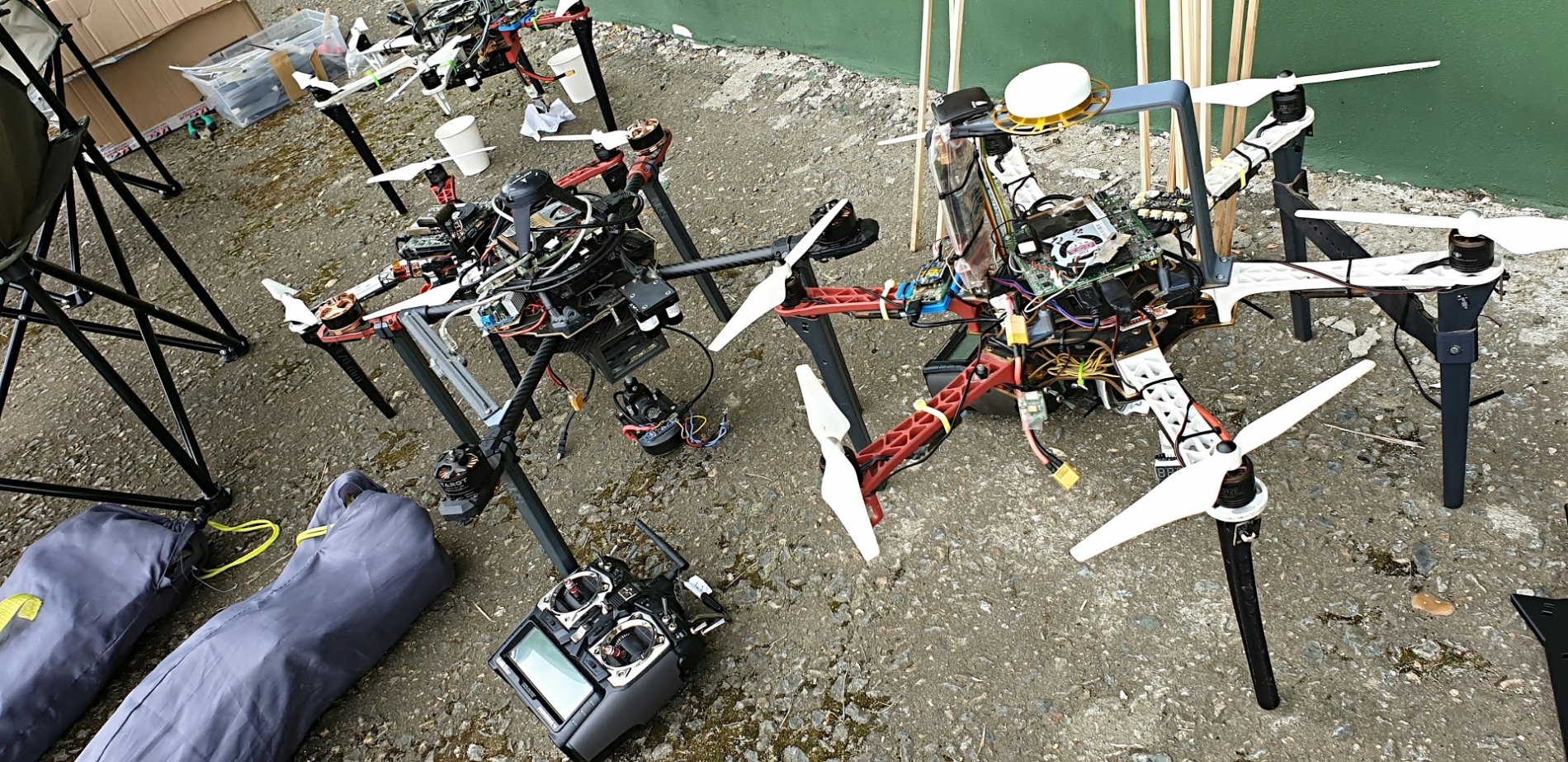YOUR BROWSER IS OUT-OF-DATE.
We have detected that you are using an outdated browser. Our service may not work properly for you. We recommend upgrading or switching to another browser.
Date: 17.10.2019 Category: general news, student activity
Radosław Grymin and Piotr Semberecki, PhD students at WUST’s Faculty of Electronics, took the first place in the competition of programming a swarm of autonomous drones. The competition was held at the Czech Technical University in Prague under a summer school programme run by the global organisation IEEE RAS.
 Institute of Electrical and Electronics Engineers Robotics and Automation Society (IEEE RAS) is a prestigious, international association of electricians and electronic engineers dedicated to the development of automation and robotics. Operating in 65 countries, it has over 15,000 members. Since 2016, the association has also organised summer schools whose subject is multi robotic systems, during which the most innovative approaches to solving problems related to controlling the so-called swarm or shoal of robots are presented.
Institute of Electrical and Electronics Engineers Robotics and Automation Society (IEEE RAS) is a prestigious, international association of electricians and electronic engineers dedicated to the development of automation and robotics. Operating in 65 countries, it has over 15,000 members. Since 2016, the association has also organised summer schools whose subject is multi robotic systems, during which the most innovative approaches to solving problems related to controlling the so-called swarm or shoal of robots are presented.
The competition organised during the summer school consisted in improving the trajectory planning algorithm for two autonomous drones, whose task was to inspect set areas. At first, the organisers provided the participants with a basic version of software together with a simulator whereby they could test their solutions.
- Our task was to modify the software and develop an algorithm that would allow the drones to inspect specific areas as quickly as possible. As for the execution of the task, first the trajectories were calculated and then the drones had to travel along them. We noticed that the drones would considerably slow down when taking turns, so one of the important elements of our algorithm was to straighten out the trajectories along some sections, which allowed us to achieve success - explains Piotr Semberecki.
On the last day of the school programme, the participants had an opportunity to test their solutions using real drones rather than a simulator. Our PhD students’ algorithm turned out to be the most effective. In their struggle for victory, they defeated the participants from the German Space Agency, Cornell University (USA), and Oxford University (UK), among others. It should be also mentioned that they were the only Poles who took part in the competition.
- Victory in this competition was a great achievement because many people were unable to prepare a proper algorithm in just a few days. Our solution met with the organisers’ appreciation, and our ideas might be developed by them - says Radosław Grymin.
The robot swarm control technology is currently being used not only by inspection robots but also in logistics. - In Amazon's large warehouses, robots are adapted to perform tasks such as carrying parcels. They operate in a distributed mode there and for this purpose, appropriate algorithms must be implemented in order to ensure effective operation and avoid collisions. In the future, these algorithms will probably also be used by fleets of autonomous cars - adds Piotr Semberecki.
Currently, our young scientists professionally carry out tasks involving the preparation of software for a single, commercial autonomous car.
In his doctoral thesis, written under the supervision of Professor Wojciech Bożejko, Radosław Grymin focuses on the problems related to autonomous drones, including the prioritisation of areas and the selection of places where autonomous robots must carry out an inspection. As for Piotr Semberecki, his doctoral thesis, written under the supervision of Professor Henryk Maciejewski, concerns machine learning issues. In particular, he deals with Reinforcement Learning, where agents/robots learn to solve tasks through interaction in conditions including a simulated environment.
Our site uses cookies. By continuing to browse the site you agree to our use of cookies in accordance with current browser settings. You can change at any time.